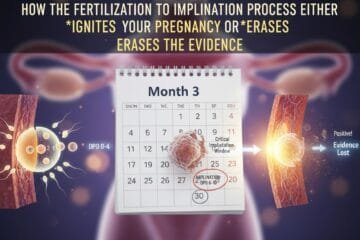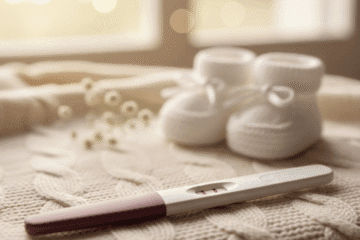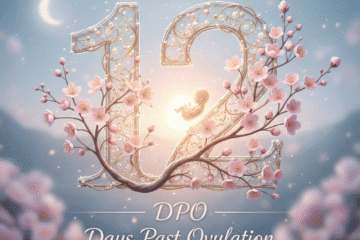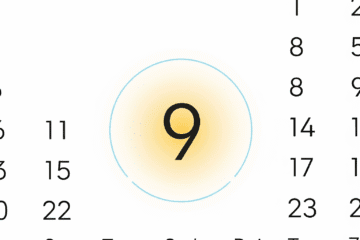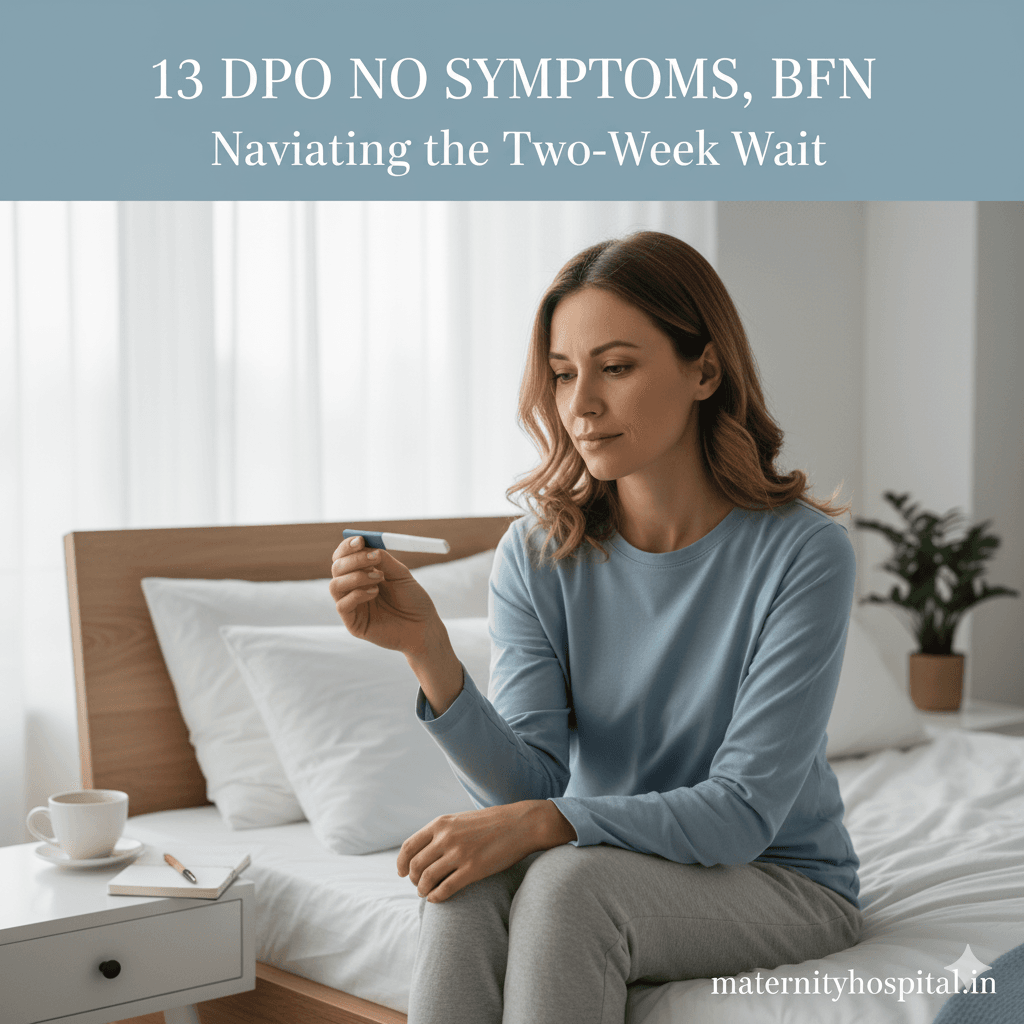
13 DPO No Symptoms BFN: The Ultimate Guide to What’s Next
The Final Countdown: Anxiety at 13 DPO
The “two-week wait” is an emotional marathon, and by 13 days past ovulation (13 DPO), you’re nearing the finish line. The anticipation is immense, often amplified by a swirling mix of hope, anxiety, and relentless symptom-spotting. For many, 13 DPO is the day to take a home pregnancy test, expecting a definitive answer. But what happens when you stare at a stark white test, a “big fat negative” (BFN), and simultaneously feel absolutely no pregnancy symptoms? The silence from both your body and the test can be deafening, leading to profound disappointment and a sense of being “out” for the cycle. This scenario—a 13 DPO no symptoms BFN—is a common source of confusion and heartbreak.
It’s a perplexing puzzle: if pregnancy is supposed to be happening, why are there no signs? And if there are no signs, how could the test be wrong? This article is designed to unravel that confusion. We will delve into the science behind why a negative test at 13 DPO, even without symptoms, might still not be the final word. We’ll explore the often-misunderstood nature of early pregnancy symptoms and provide you with clear, actionable steps for the crucial days ahead. Even with a 13 DPO no symptoms BFN, hope is not always lost, and understanding the nuances of this stage can bring valuable peace of mind.
The Science of Silence: Why a BFN at 13 DPO Still Isn't the End
By 13 DPO, your body has had ample time since ovulation for fertilization and implantation to occur. Implantation typically happens between 6 and 12 DPO. Once the fertilized egg implants in the uterine wall, the production of Human Chorionic Gonadotropin (hCG)—the pregnancy hormone detected by home tests—begins. hCG levels then double approximately every 48 to 72 hours. This rapid rise is why 13 DPO is generally considered a highly reliable day for pregnancy testing; most sensitive home pregnancy tests should be able to detect pregnancy by this point.
However, a 13 DPO no symptoms BFN doesn’t automatically close the door on pregnancy. There are still a few scientific possibilities to consider:
- Very Late Implantation: While less common, implantation can occur on DPO 12. If this happened, your body would have only just begun producing hCG, and levels might not yet be high enough for detection on DPO 13.
- Slow-Rising hCG: Every individual’s hCG production rate is unique. Some individuals might have slower-rising hCG levels in the very early stages, making detection slightly delayed.
- Test Sensitivity & Urine Dilution: Even sensitive tests have a threshold. If your hCG is just below that threshold, or if your urine was diluted (e.g., by drinking a lot of water before testing), the test might not pick it up.
The American College of Obstetricians and Gynecologists (ACOG) typically recommends waiting until a missed period for the most accurate results, often around 14 DPO or later. This buffer accounts for individual variations in ovulation and implantation timing. So, even with a 13 DPO no symptoms BFN, there’s a slim window of hope that warrants further monitoring.
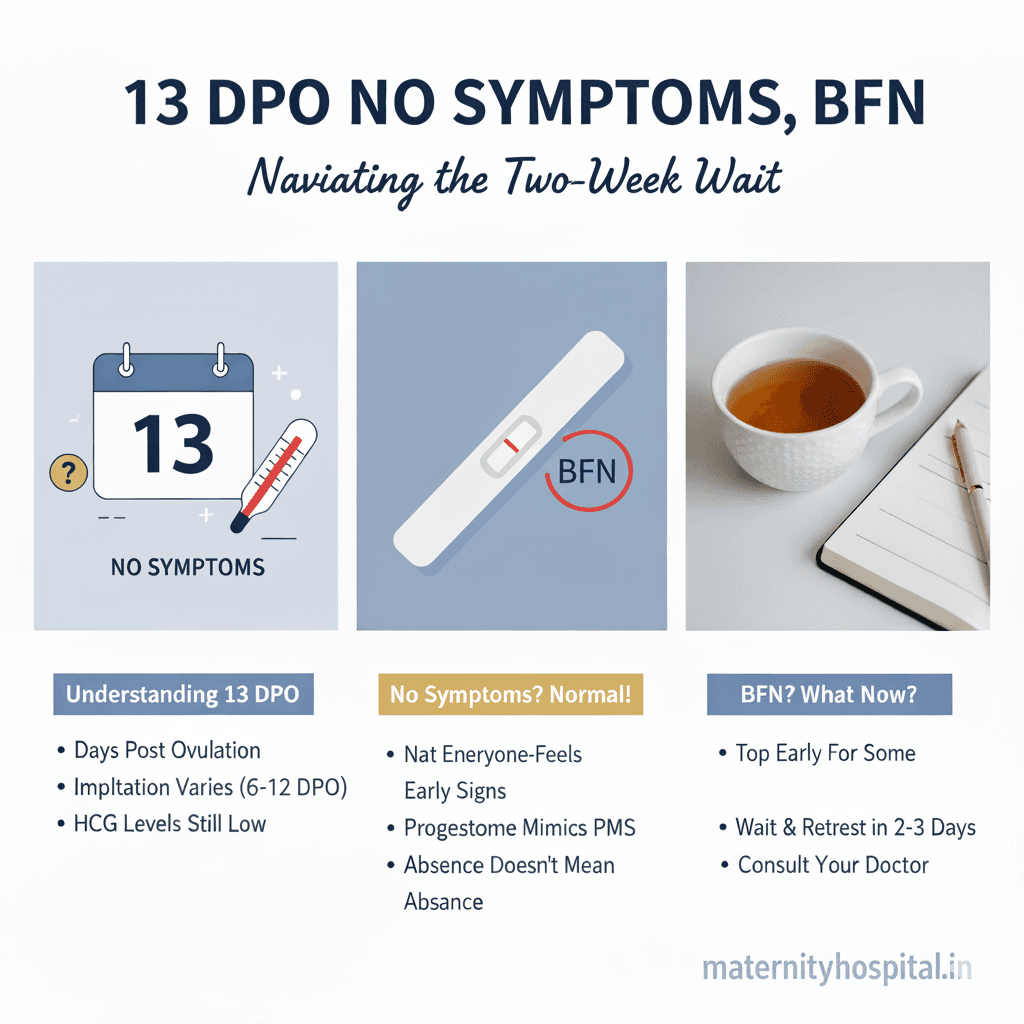
Decoding the Quiet: No Symptoms vs. Early Pregnancy
One of the most anxiety-inducing aspects of a 13 DPO no symptoms BFN is the apparent lack of physical signs. We’re often conditioned by media and anecdotal stories to expect a cascade of symptoms—nausea, fatigue, breast tenderness—from the moment of conception. The truth, however, is far more nuanced:
- Many Pregnancies Have No Early Symptoms: A significant percentage of pregnant individuals experience very few, if any, noticeable symptoms in the first few weeks of pregnancy. Every body is different, and the onset, type, and intensity of symptoms vary wildly. A lack of symptoms does not equal a lack of pregnancy.
- Progesterone Mimicry: Many classic “early pregnancy symptoms” are actually caused by the rise in progesterone after ovulation. This hormonal surge happens whether you are pregnant or not, preparing your body for a potential pregnancy. So, if you do feel symptoms, they could be PMS; if you don’t, it doesn’t rule out pregnancy either.
- Subtle Changes Go Unnoticed: Some individuals may experience incredibly subtle changes that they simply don’t attribute to pregnancy, especially if they are not actively looking for them.
The takeaway here is crucial: the absence of symptoms is not a reliable indicator that you are not pregnant. Conversely, the presence of symptoms is not definitive proof. The test result, while needing to be confirmed, is still the most objective piece of evidence you have. Trusting your individual experience over generalized expectations is key when dealing with a 13 DPO no symptoms BFN.
Your Next Steps: From Uncertainty to Clarity
Facing a 13 DPO no symptoms BFN can leave you feeling lost, but there are clear, actionable steps you can take to move towards clarity. Don’t let a single test result, especially at this early stage, completely diminish your hope.
- Wait and Retest: This is the most crucial next step. Your period is likely due within the next day or two. If it doesn’t arrive, wait 48-72 hours and test again. This gives your hCG levels maximum time to rise.
- Use First-Morning Urine: For the most concentrated sample and highest chance of detecting hCG, always use your first-morning urine when re-testing. Avoid drinking excessive liquids before testing, as this can dilute your sample.
- Consider a Different Test: While not always necessary, if you’ve been using one brand, you might try another, or a digital test for a clear “Pregnant” or “Not Pregnant” answer. Keep in mind some digital tests are less sensitive to very low hCG levels.
- Monitor for Your Period: Keep track of your expected period date. If your period is more than a few days late and you are still getting negative tests, it’s time to consult your healthcare provider.
- When to Consult a Doctor: If your period is late and you continue to get negative home pregnancy tests, your doctor can order a blood test. Blood tests are significantly more sensitive than urine tests and can detect much lower levels of hCG, providing a definitive answer. The Cleveland Clinic offers insights into understanding early test results.
What if an unexpected BFP appears after a BFN? If you later get a positive result, congratulations! Contact your doctor to schedule your first prenatal appointment and begin or continue taking prenatal vitamins with folic acid, as recommended by the Centers for Disease Control and Prevention (CDC).
FAQs: Addressing Your 13 DPO Concerns
Here are common questions and answers related to a 13 DPO no symptoms BFN.
- Can I still be pregnant at 13 DPO with no symptoms and a BFN?
Yes, it’s possible. While less common than getting a positive by 13 DPO, factors like very late implantation (DPO 12), slower hCG rise, or dilute urine can lead to a false negative. Also, many pregnant individuals don’t experience symptoms this early.
- What is a “false negative” at 13 DPO?
A false negative means the test shows negative, but you are actually pregnant. At 13 DPO, this is typically due to testing too early for your specific hCG levels or timing of implantation, rather than a faulty test.
- If I have no symptoms, does that mean I’m not pregnant?
No. It’s a common misconception that early pregnancy always comes with strong symptoms. Many women have healthy pregnancies with very few or no noticeable symptoms in the first few weeks. A lack of symptoms is not a reliable indicator against pregnancy.
- When should I re-test after a 13 DPO no symptoms BFN?
If your period hasn’t started, wait until your missed period day (often 14 DPO) or 1-2 days after your expected period. This gives hCG more time to build up.
- My period is due tomorrow. Should I wait to test?
For the most accurate results, waiting until the day of your missed period (or even a day or two after) is always recommended. This maximizes your chances of detecting hCG if present.
- When should I contact my doctor about a late period and negative tests?
If your period is more than a week late and you’ve had multiple negative home pregnancy tests, it’s advisable to contact your doctor. They can perform a blood test for a definitive answer and discuss other potential reasons for a delayed period. Resources like Apollo Hospitals can also provide guidance on when to seek medical advice for late periods.
Holding onto Hope: Managing the Final Stretch
The days leading up to your expected period, especially when you’re navigating a 13 DPO no symptoms BFN, can be incredibly draining. The mental game of hoping against hope, battling disappointment, and trying to stay calm is challenging. It’s vital to acknowledge these feelings and allow yourself to experience them without judgment. Remember, this journey is deeply personal and emotionally taxing.
Focus on self-care during this final stretch. Engage in activities that bring you joy and help reduce stress, whether that’s gentle exercise, reading a book, spending time with loved ones, or practicing mindfulness. Avoid getting lost in endless internet searches, which can often amplify anxiety rather than soothe it. Trust that you are doing everything you can, and that clarity will come soon. Whether this cycle leads to a positive or moves you forward to the next, your resilience and strength are remarkable.
Conclusion: Patience, Hope, and Clarity Ahead
A 13 DPO no symptoms BFN can be a moment of profound disappointment, but it is not necessarily the final chapter of your cycle. While tests at 13 DPO are generally reliable, individual variations in ovulation, implantation, and hCG production mean that a glimmer of hope can still remain. More importantly, experiencing no symptoms at this stage is completely normal and does not rule out pregnancy.
By understanding the science, managing your expectations, and taking the prudent next steps—re-testing, waiting for your period, or consulting your doctor—you are empowering yourself with knowledge and control. Trust your body’s unique timeline, remain patient, and know that clarity is just around the corner. Your journey is valid, and your strength will carry you through, no matter the outcome.


